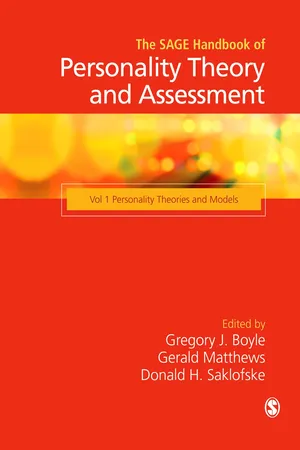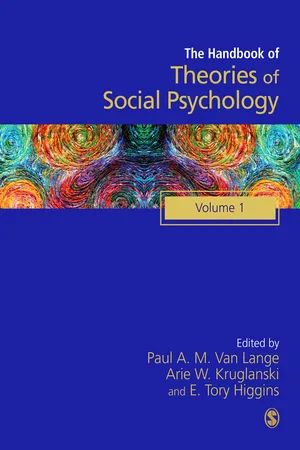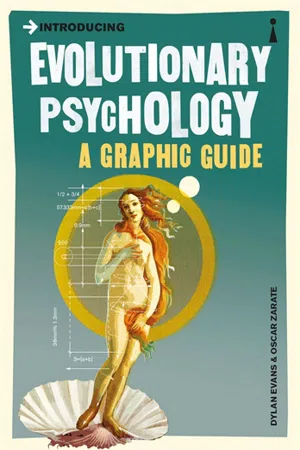Psychology
Evolutionary Perspective in Psychology
The evolutionary perspective in psychology focuses on how human behavior and mental processes have evolved over time to enhance survival and reproduction. It emphasizes the role of natural selection in shaping psychological mechanisms and traits. This perspective seeks to understand human behavior by examining how it may have been adaptive in the context of our ancestors' environments.
Written by Perlego with AI-assistance
Related key terms
8 Key excerpts on "Evolutionary Perspective in Psychology"
- eBook - ePub
- Charles Crawford, Dennis Krebs(Authors)
- 2012(Publication Date)
- Psychology Press(Publisher)
1Evolutionary PsychologyThe Historical ContextCATHERINE SALMON AND CHARLES CR AWFORD“In the distant future I see open fields for far more important researchers. Psychology will be based on a new foundation, that of the necessary acquirement of each mental power and capacity by gradation. Light will be thrown on the origin of man and his history.”Charles Darwin, 1859, On the Origin of SpeciesOne such new field is Evolutionary Psychology. This discipline focuses on the study of human behavior from an adaptationist perspective, examining the mental mechanisms that evolved to solve problems faced in our ancestral past and how those mechanisms continue to produce behavior today. There are several peer review journals that focus specifically on this field, including Evolution and Human Behavior and Human Nature; ones that focus mainly on this field, including Evolution and Cognition and Politics and the Life Sciences; and many others that regularly publish articles from this perspective including Behavioral and Brain Sciences, Journal of Personality and Social Psychology, Animal Behavior, Quarterly Review of Biology, and Cognition. This chapter will describe the historical antecedents of the evolutionarily informed study of human behavior.Evolutionary Thinking Before DarwinFor much of our recorded history, and perhaps long before, people have been fascinated with the natural world and our place in it. The complexity of our own nature, both physical and mental, has been a source of particular interest. How could something as complex as a person come into existence if not by the hand of God? In the eyes of many, such complexity (epitomized by the human eye) seemed to require special design, which implies a designer. The idea that all of nature, including man, was created as it is by an omnipotent power has been a wide-ranging belief, formalized in religious doctrine. Aristotle contributed to this belief with “The Great Chain of Being,” the idea being that each species had its own particular place in a hierarchical progression. God was at the top of the ladder (true perfection), followed by angels, men, women, animals, plants, and inanimate objects. The implication is that there is a natural order to things, something or someone cannot move from one rung of the ladder to another. - eBook - ePub
The SAGE Handbook of Personality Theory and Assessment
Personality Theories and Models (Volume 1)
- Gregory J Boyle, Gerald Matthews, Donald H Saklofske(Authors)
- 2008(Publication Date)
- SAGE Publications Ltd(Publisher)
Human personality is often framed void of original considerations. Not only are the origins of personality often dismissed, so too are considerations of functionality dismissed regarding the development, structure, and processes of personality. Historically, we have been asked to accept the existence of personal constructs (Kelly, 1955), or needs (Freud, 1930/1949; Maslow, 1970; Murray, 1937, 1938), or traits (Allport, 1931, 1960), or factors (Eysenck, 1981; John, 1990), or drives (Freud, 1930/1949; Murray, 1936, 1938), or motives (Winter, 1973), or life tasks (Cantor, 1990), with little or no recourse to questions of adaptive design or functionality. Importantly, however, evolutionary processes are as relevant to humans as to every other life form with which we share the planet. There is no reason to expect that human nature or personality is exempt from natural or sexual selective pressures.Human personality is thus best conceptualized within the framework of evolutionary psychology (see for example Barkow et al., 1992; Buss, 1990, 1991; Crawford et al., 1987; Daly and Wilson, 1983). Evolutionary psychology suggests that the way we think, feel, and behave today can be understood by considering which thoughts, feelings, and behaviors increased the relative survival and reproduction of our ancestors. Manifesting certain thoughts, feelings, and behaviors in certain contexts increased ancestral humans’ abilities to out-survive and out-reproduce less successful conspecifics. These offspring had some positive probability of inheriting the genetic structure coding (in concert with relevant environmental input) for the development of the psychological mechanisms that (in response to certain cues) produce that same pattern of thoughts, feelings and behaviors. The offspring, too, would be expected to be relatively more reproductively successful. And this would be true for their - Michael E. Illovsky(Author)
- 2013(Publication Date)
- Routledge(Publisher)
“Evolutionary psychology is an approach to psychology, in which knowledge and principles from evolutionary biology are put to use in research on the structure of the human mind” (Cosmides & Tooby, 1997, p. 1). Evolutionary psychology tries to delineate the evolutionary algorithms of information processing and behavior by studying evolutionary biology and psychology (McGuire & Troisi, 1998, p. 38). Evolutionary psychology seeks the universal mechanisms that underlie human behavior. It examines the environment that man developed in. It examines the behavioral mechanisms that were developed to enable man to survive through the millenniums in various environments. Evolutionary psychologists assume that there is a genetic basis for these behaviors. It examines modern behaviors of man across cultures and seeks the universal origins of these behaviors.Spriggs (1998) wrote,At the core of evolutionary psychology is the belief that all humans on the planet have innate areas in their brains which have specific knowledge that help them adapt to local environments. These areas are highly specialized, and only activate when the information is needed. These areas, when activated, give the brain specific algorithmic (step by step) instructions that have evolved from our ancestral pasts to adapt to all situations that we now face as humans. Some scientists speculate that these areas are attachments to long-term memory areas, and assist in problem-solving. These areas of the brain have a number of names: special learning mechanisms; psychological mechanism devices; mental mechanism devices; evolved cognitive structures; functionally specialized computational devices; and Darwinian algorithmic mechanisms.- eBook - ePub
- Paul A M Van Lange, Arie W Kruglanski, E Tory Higgins(Authors)
- 2011(Publication Date)
- SAGE Publications Ltd(Publisher)
The various controversies surrounding evolutionary social psychology were discouraging to many young researchers, but they have not been fruitless. Controversy often contributes to empirical and theoretical progress, as a theory’s proponents search for new findings to address critics’ skepticism. The evolutionary approach has generated many new findings and ideas, and the field’s top journals have since published hundreds of social psychological studies testing evolutionary informed hypotheses about the whole range of social behaviors, from altruism to xenophobia (e.g., Griskevicius et al., 2007; Navarette et al., 2009; Schaller and Murray, 2008). Many of today’s prominent social psychologists, including several contributors to this volume, have incorporated evolutionary perspectives into their research (e.g., Brewer and Caporael, 2006; Cialdini et al., 1997; Deci and Ryan, 2000; Fiske et al. 2007; Higgins and Pittman, 2008; Huang and Bargh, 2008; Leary and Baumeister, 2000; Mikulincer and Shaver, 2006; Sedikides and Skowronski, 1997; Taylor et al., 2000; Van Knippenberg and Van Baaren, 2006; Van Vugt and Van Lange, 2006). At the same time, the approach continues to generate new empirical questions, and new theoretical puzzles to solve.WHAT IS EVOLUTIONARY SOCIAL PSYCHOLOGY?From an evolutionary perspective, all recurrent human social behaviors reflect the influence of physical and psychological predispositions that helped our ancestors survive and reproduce. This does not mean every individual social behavior is successful in promoting survival and reproduction, and it does not mean people (or other social animals) consciously think about survival and reproduction all, most, or even much of the time. It does imply that any social animal’s brain is composed, in part, of mechanisms that helped its ancestors succeed in interactions with other members of its species. Thus, humans’ reactions to other humans are presumed to reflect the influence of mechanisms shaped to solve the kinds of problems and opportunities our ancestors regularly encountered. I emphasize “reflect the influence” because an evolutionary approach does not imply that human behaviors are robotically determined by instinctive mechanisms over which we have no conscious control, or which are impervious to environmental inputs. People can and often do exercise control over powerful and fundamental emotional and motivational inclinations, including anger, fear, and sexual arousal. Furthermore, most mental mechanisms reflect the operation of flexible trade-offs, determined in interaction with current environmental conditions and past learning experiences (e.g., Ohman and Mineka, 2001). Although flexible, the influences of evolved predispositions (like hunger, thirst, sexual arousal, and anger) are nevertheless powerful vectors in our decision-making.To understand the importance of evolved mental mechanisms, it helps to step back from our own species, and consider the interaction between other animals’ bodily features and their environments. Killer whales, for example, though related to cows, would not do well with a cow’s brain, since a killer whale’s brain must control a body that tracks prey in the ocean rather than eating grass in a meadow. Likewise, bats, though also mammals, need brains designed to run tiny bodies that fly around catching insects at high speeds in the dark. Because all organisms’ brains are composed of mechanisms evolved to deal with recurrent environmental threats and opportunities, evolutionary theorists ask: what are the implications of human evolutionary history (e.g., living in omnivorous and hierarchical primate groups populated by kin) for the design of the human mind? Evolutionary social psychologists focus on the subset of questions dealing with recurrent social conditions of human life, and their hypotheses reflect anthropological data about social interactions common in societies around the world (e.g., close relationships with family, dominance hierarchies, longterm bonds between parents, common dangers from other groups competing for resources and territory, etc.), as well as general principles derived from placing humans in the context of other species confronting diverse adaptive problems (e.g., Allen-Arave et al., 2008; Lummaa, 2007). - Sarah Robins, John Symons, Paco Calvo(Authors)
- 2019(Publication Date)
- Routledge(Publisher)
in principle with classical sociobiology? One big worry concerns the massive diversity of social behaviours that human beings perform – from culture to culture and from individual to individual. If human social behaviours are species-wide adaptations, the result of a long process of cumulative selection, one might expect those behaviours to be robust across different cultures. However, this is not the pattern we see in human cultural life. Human social behaviours seem extraordinarily sensitive to cultural factors, in a way that goes well beyond what could possibly be absorbed by the idea of adaptations that are expressed only in certain circumstances. And a similar point could be made about behavioural variations between individuals.One response to this difficulty might be to run back into the arms of SSSM. But there is an alternative. Enter evolutionary psychology, which shifts the focus of Darwinian selective attention away from behaviours and on to the inner, neurally realized, psychological mechanisms that are the proximal causes of those behaviours. On this view, then, what gets selected for are not the behaviours themselves, but rather the psychological mechanisms that generate and control them. Just as there are anatomical adaptations (bodily structures shaped by natural selection to solve certain adaptive problems), there are psychological adaptations (cognitive structures shaped by natural selection to solve certain other adaptive problems). Thus, as Cosmides and Tooby (1987: 282) put it, “[the] evolutionary function of the human brain is to process information in ways that lead to adaptive behavior .”We have now unearthed our second baseline commitment of evolutionary psychology, which concerns the “psychology” part of the term. Evolutionary psychology is, as we have just seen, a species of information-processing psychology- eBook - ePub
Introducing Evolutionary Psychology
A Graphic Guide
- Dylan Evans, Oscar Zarate(Authors)
- 2015(Publication Date)
- Icon Books Ltd(Publisher)
What is Evolutionary Psychology?
Evolutionary psychology is the combination of two sciences – evolutionary biology and cognitive psychology. These two sciences are like two pieces of a jigsaw puzzle. We need both pieces if we want to understand human behaviour.We will begin by looking at each of these sciences separately. Then we will see how evolutionary psychology puts them together to arrive at a complete scientific account of human nature.Cognitive Psychology
Cognitive psychology is the most powerful theory of the mind ever developed. It has transformed psychology from a vague set of unclear ideas into a true science. There are two main ideas. (1) Actions are caused by mental processes. (2) The mind is a computer.you mean, the mind is like a computer? no, and you’ll see why in a moment ...Let’s have a look at these two ideas in more detail.Actions Are Caused by Mental Processes
Psychology is the science of human behaviour. It attempts to explain why humans act the way they do.We are all amateur psychologists. We constantly offer explanations for our actions and for the actions of others. For example, when I see Jim pick up an umbrella as he leaves the house, I might explain this action in the following way.jim thinks it’s going to rain, and he wants to stay dry. this kind of explanation is called a mentalistic explanation because it refers to mental processes like beliefs and desires.When we say that “Jim thought it was going to rain”, we are saying that Jim had a certain belief. When we say that “Jim wanted to stay dry”, we are saying that Jim had a certain desire.Behaviourist Psychology
When we explain actions by referring to beliefs and desires, we are claiming that these mental processes are the causes - eBook - ePub
Evolutionary Psychology
The New Science of the Mind
- David M Buss(Author)
- 2019(Publication Date)
- Routledge(Publisher)
It is part of the male lion’s nature to walk on four legs, grow a large furry mane, and hunt other animals for food. It is part of the butterfly’s nature to enter a flightless pupa state, wrap itself in a cocoon, and emerge to soar gracefully in search of food and mates. It is part of the porcupine’s nature to defend itself with quills, the skunk’s to defend itself with a nasty spray, the stag’s to defend itself with antlers, and the turtle’s to defend itself with a shell. All species have a nature; that nature is different for each species. Each species has faced somewhat unique selection pressures during its evolutionary history and therefore has confronted a somewhat different set of adaptive problems.Humans also have a nature—qualities that define us as a unique species—and all psychological theories imply its existence. For Sigmund Freud, human nature consisted of raging sexual and aggressive impulses. For William James, human nature consisted of dozens or hundreds of instincts. Even the most ardent environmentalist theories, such as B. F. Skinner’s theory of radical behaviorism, assume that humans have a nature—in this case, consisting of a few highly general learning mechanisms. All psychological theories require at their core fundamental premises about human nature.Each species carries its own unique nature—unique adaptations that differ from those of other species. The porcupine, skunk, and turtle all defend themselves against predators, but each uses a Different means of doing so.Because evolution by selection is the only known causal process capable of producing the fundamental adaptive components of that human nature, all psychological theories are implicitly or explicitly evolutionary. If humans have a nature and evolution by selection is the causal process that produced that nature, then the next question is: What great insights into human nature can be provided by examining our evolutionary origins? Can examining the process of evolution tell us anything about the products of that process in the human case? Answers to these key questions form the core of the rest of this book.Whereas the broader field of evolutionary biology is concerned with the evolutionary analysis of all the integrated parts of an organism, evolutionary psychology tends to focus more narrowly on those parts that are psychological—the analysis of the human mind as a collection of evolved information-processing mechanisms, the contexts that activate those mechanisms, and the behaviors generated by those mechanisms. And so we turn now directly to the class of adaptations that make up the human mind: evolved psychological mechanisms. - Kory Floyd, Rene Weber(Authors)
- 2020(Publication Date)
- Routledge(Publisher)
However, for media researchers with experimental paradigms in particular, the question is how they can integrate Tinbergen’s ultimate perspective into their established research processes, and at the same time avoid telling “just-so-stories” or using evolutionary approaches for ex post facto explanations of observed data (Schwab 2010; Schwab & Schwender, 2010). We have organized scholarly advice on the appropriate incorporation of ultimate questions into research procedures into three steps: (1) considering the assumed evolved functioning of the human mind; (2) using a Lakatosian philosophy of science, in contrast to the usual Popperian philosophy (Ketelaar & Ellis, 2000); and (3) following guidelines for developing and testing evolutionary theories and hypotheses (Buss, 1995). Biology of the Human Mind When looking for biologically grounded explanations for human behavior, researchers actually observe organisms that live in an environment that is very different from the environment evolution has equipped them to live in. Thus, when making assumptions about the functioning of the evolved human mind, researchers in ethology and evolutionary psychology put particular focus on the Pleistocene, a period of time when our ancestors inhabited a relatively stable environment for many generations (Barkow et al., 1992; Cosmides & Tooby, 1992; Schwab, 2006; Schwab & Schwender, 2010). During the Pleistocene, the Homo species recurrently faced adaptive problems, and it is assumed that evolution shaped a human mind that is equipped to deal effectively with the adaptive problems encountered in this ancient environment. Researchers assume that this has been achieved by a series of specialized, domain-specific mechanisms that facilitate the solution of recurrent adaptive problems: the evolved psychological mechanisms (EPMs; Barkow et al., 1992; Buss, 1999; Schwab, 2010)
Learn about this page
Index pages curate the most relevant extracts from our library of academic textbooks. They’ve been created using an in-house natural language model (NLM), each adding context and meaning to key research topics.







